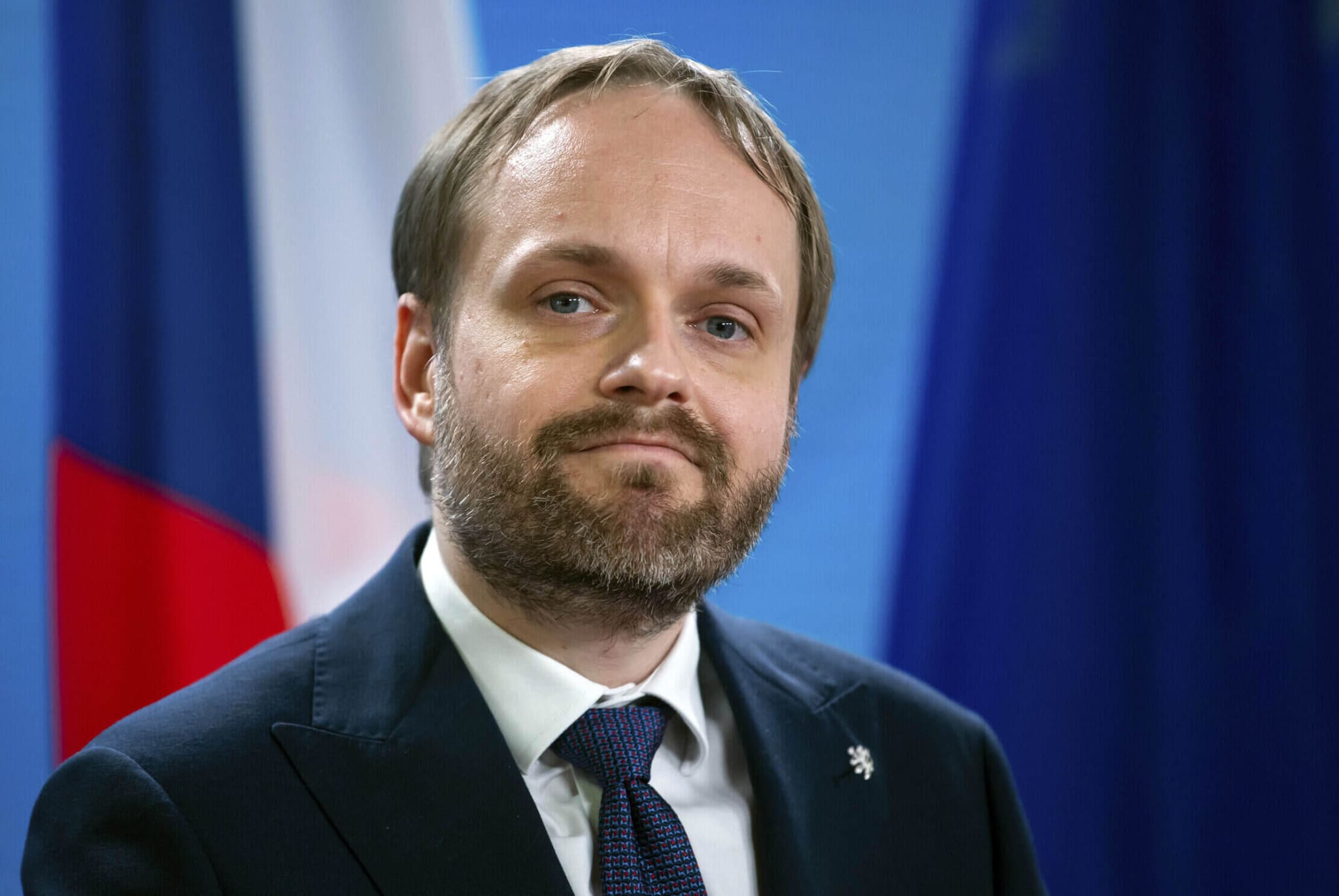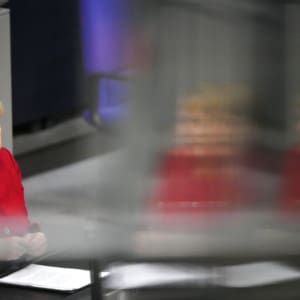The task of Czech diplomacy is to further develop the alliance with Israel, including strengthening the Czech diplomatic presence in Jerusalem, according to Czech Foreign Minister Jakub Kulhánek during the annual meeting with Czech diplomats at the Černín Palace.
He rejected the “complete dismantling” of Czech-Russian relations, although the return to normal, according to him, will take a long time.
Kulhánek commented on the Czech presidency of the European Union, saying that Czech diplomacy will strive for a strong, resilient, and sustainable Europe.
At the opening of the week-long meeting of Czech ambassadors, Kulhánek, together with Prime Minister Andrej Babiš, honored Czech Ambassador to Afghanistan Jiří Baloun for his work in evacuating Czech diplomats and local collaborators from Kabul. He presented him with the highest departmental award for merits in diplomacy.
In his speech, the Kulhánek commented on the most important areas of Czech diplomacy. He talked about the development of relations with Moscow after the expulsion of Russian diplomats due to the Russian involvement in the explosions in Vrbětice. Kulhánek praised the Czech authorities’ approach.
“We have maintained the honor of a state that respects international law and does not act hysterically,” he said.
According to him, the matter does not end, because the task of diplomats is to maintain communication even in difficult times. Although the return to normal relations will be very long, he does not consider any claims about the complete dismantling of Czech-Russian relations to be reasonable.
The minister called the effort to maintain trade or cultural relations with Russia to be the correct approach. He said that an audit of Czech-Russian relations was being set up and that next week the ministry was organizing a closed roundtable with representatives of parliamentary parties.
During the coronavirus crisis, the European Union proved, despite some problems, that it is vital for ensuring Czech security and prosperity, Kulhánek stated. He said the lesson from the crisis for the EU should be a greater focus on practical steps to help member states.
Balkans should be allowed to join the EU
During the Czech presidency of the EU next year, according to the minister, Czechia must meet the expectations of the EU’s partners, strengthen ties with like-minded member states, and, as far as possible, reflect its own priorities in the further direction of the EU.
“Priorities at the level of the Ministry of Foreign Affairs can then be generalized into three concepts: we want a strong, resilient, and sustainable Europe,” he said.
Kulhánek described the policy of enlargement of the union as an important point of the Czech presidency.
“It is in our economic, political, and security interests to move with the European integration of the Western Balkans countries as quickly as possible,” he said. He hopes that a deadline will be set during the Czech presidency by which Serbia can join the EU.
He highlighted good transatlantic relations and the maintenance of a functioning North Atlantic Alliance as one of the pillars of Czech foreign and security policy.
Kulhánek also stressed the alliance with Israel, which he wants to further develop, including strengthening the Czech diplomatic presence in Jerusalem.
The issue of migration should be addressed primarily in countries of origin, or in transit countries. He rejected mandatory quotas for the redistribution of refugees in the EU.
In his speech, Kulhánek returned to the events in Afghanistan. According to him, the result of 20 years of allied efforts cannot be described as a success, but he expressed pride in the work of soldiers and diplomats. According to him, the effects of developments in the country will be felt in Central Asia and the Middle East, and may also affect transatlantic relations.
Title image: Jakub Kulhanek, Foreign Minister of the Czech Republic, speaks on his inaugural visit to the Foreign Minister of Germany at a press conference, in Berlin, Tuesday, May 25, 2021. (Bernd von Jutrczenka/Pool Photo via AP)






